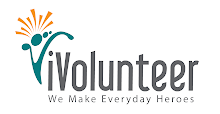By Deanie Lyn Ocampo
Volunteer Management, No. 1
It really is quite amazing, this miracle of life and its development. Try to put together something as complicated as a whole person. From a single fertilized cell develops trillions of cells! No wonder this miracle never ceases to amaze parents, scientists, writers and poets.
Parents-to-be wonder whether their unborn child is a boy or girl or whether he or she is going to be healthy. The birth of a child into the family is an unforgettable and mysterious event, a milestone, such that family members continue to tell stories about the birth of their babies long after the children have grown up.
Newborns are not as helpless and passive as we once thought them to be, thanks to new research. From the moment they are born, infants live their active lives. They develop ways of making sense of and organizing the sights, sounds, smells, and tactile sensations everyday—the green park, the purring cats, arroz caldo, mangoes, soft pillows. They begin to understand the world around them and the meaning and function of words. They coordinate eyes and hands in order to grab the ball under the book, to pull themselves up or to cruise along the sofa. They develop ways of interacting with an ever-growing set of family members.
 Children become more complex thinkers during early childhood. They communicate better, and ask and answer many interesting questions. Although their thinking is limited and dominated by their own perceptions, it eventually opens up to advanced forms of reasoning and understanding. Children discover there is life outside the family, such as riding tricycles in the neighborhood, finger painting in the preschool, and watching fantastic creatures in television. They build friendship with peers and work untiringly together in settings adults call play.
Children become more complex thinkers during early childhood. They communicate better, and ask and answer many interesting questions. Although their thinking is limited and dominated by their own perceptions, it eventually opens up to advanced forms of reasoning and understanding. Children discover there is life outside the family, such as riding tricycles in the neighborhood, finger painting in the preschool, and watching fantastic creatures in television. They build friendship with peers and work untiringly together in settings adults call play.
Oh, how we wish that all children would develop fully in a loving and enriched environment from the womb through the first six years of life! This is the period when the brain develops fastest, essential structures of language and thought are constructed, the foundations of basic attachment, security and confidence are formed, and the growth of physical abilities initiated. It is generally agreed that this early childhood stage is the most influential in a person’s life. Therein lay the significance of the 0-6 years.
In 2000, Republic Act 8980, or the Early Childhood Care and Development (ECCD) Act, was passed. It institutionalizes a national system for ECCD in the country that delivers health, nutrition, early education, and psychosocial services to young children, including children with special needs or of different cultural backgrounds. It supports and educates parents and organizes communities to improve the quality of life together. It opens a larger ground for everyone to work together for young children.

As a response, Kaisa Para Sa Kaunlaran Inc., a non profit composed of Chinese Filipinos, organizes Kaisa Sa 0-6, a national volunteering program for ECCD. The program aims to promote, recruit, field, facilitate, and recognize volunteers and their effort for local ECCD. Kaisa Sa 0-6 also preferentially identifies the local ECCD coordinating committees of LGUs as its local partners and co-volunteer managers.
Kaisa Sa 0-6 sees the potential for ordinary people, whether Tsinoys or other Filipinos, to make a real difference in children’s lives by doing simple but often extraordinary things. The volunteer opportunities are numerous!
To deliver ECCD services, volunteers can accompany pregnant women for their periodic prenatal check-ups. They can conduct the PABASA, an innovative nutrition information education strategy that integrates breastfeeding and complementary feeding. They can clean maternity clinics so that conditions during delivery are optimal for a safe and healthy birth. They can join the roving birth registration team so that parents don’t have to travel to the Local Civil Registrar of the LGU.

To advocate, network and generate resources, volunteers can design marketing or communication plans to increase public awareness on ECCD. They can link various organizations, local and international, to be involved in the local ECCD system. They can organize fund raisers, develop websites, or publish community newsletters—all for ECCD.
Kaisa Sa 0-6 offers another common ground for Tsinoys and other Filipinos to step in and stand on together. To care for young children and for this nation is the common ground we share, one that is much bigger and nobler than the surname, skin color, physical features, wealth or educational status we differently possess. And no matter how many trillions of cells set us apart and unique from each other, it is the miracle of life and its development we experience that makes us all the same.
Philippine Copyright 2009
Thursday, December 17, 2009
Kaisa sa 0-6: Another common ground
Posted by
deanielyn
at
9:51 AM
![]()
![]()
Subscribe to:
Post Comments (Atom)




No comments:
Post a Comment